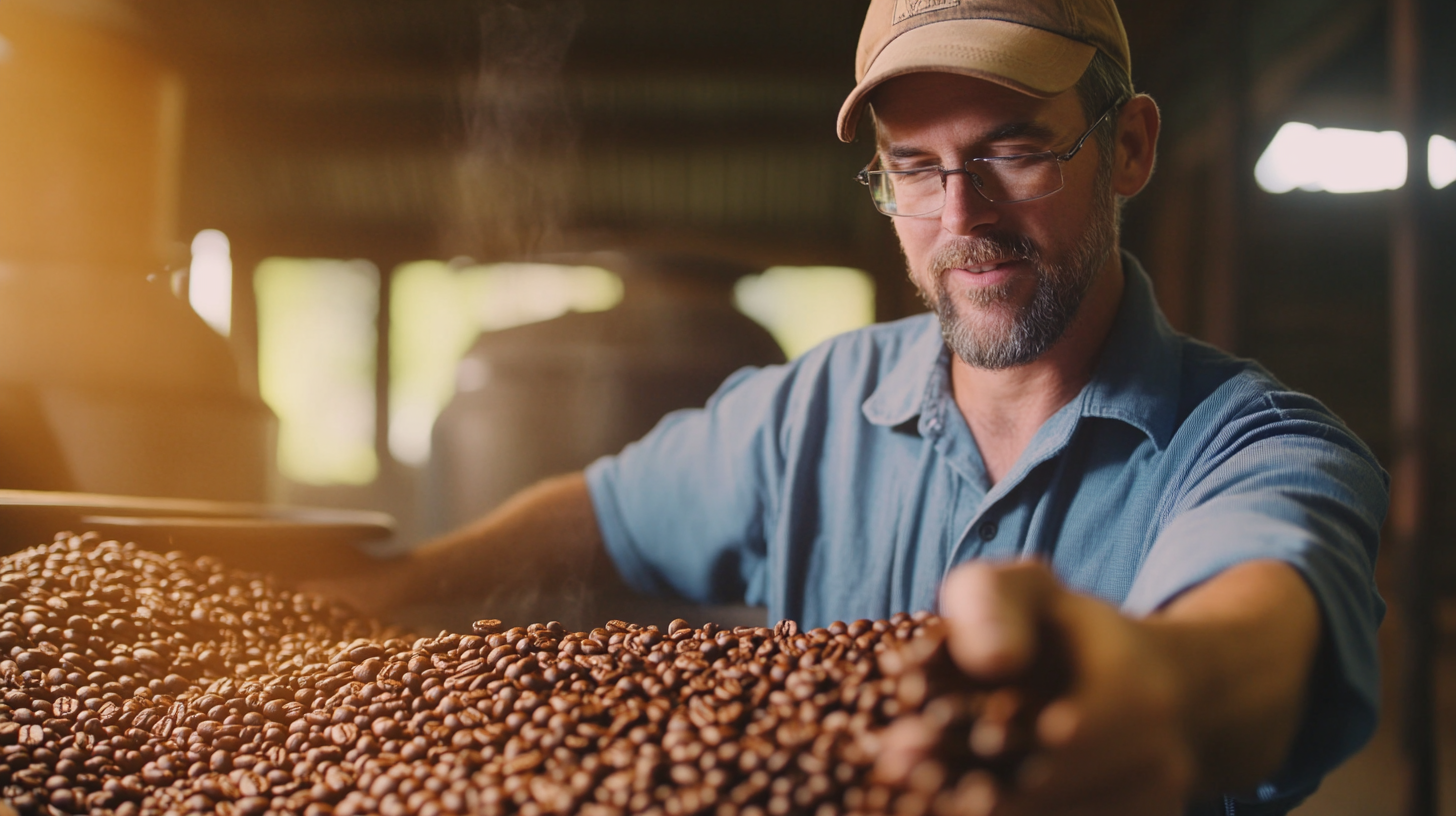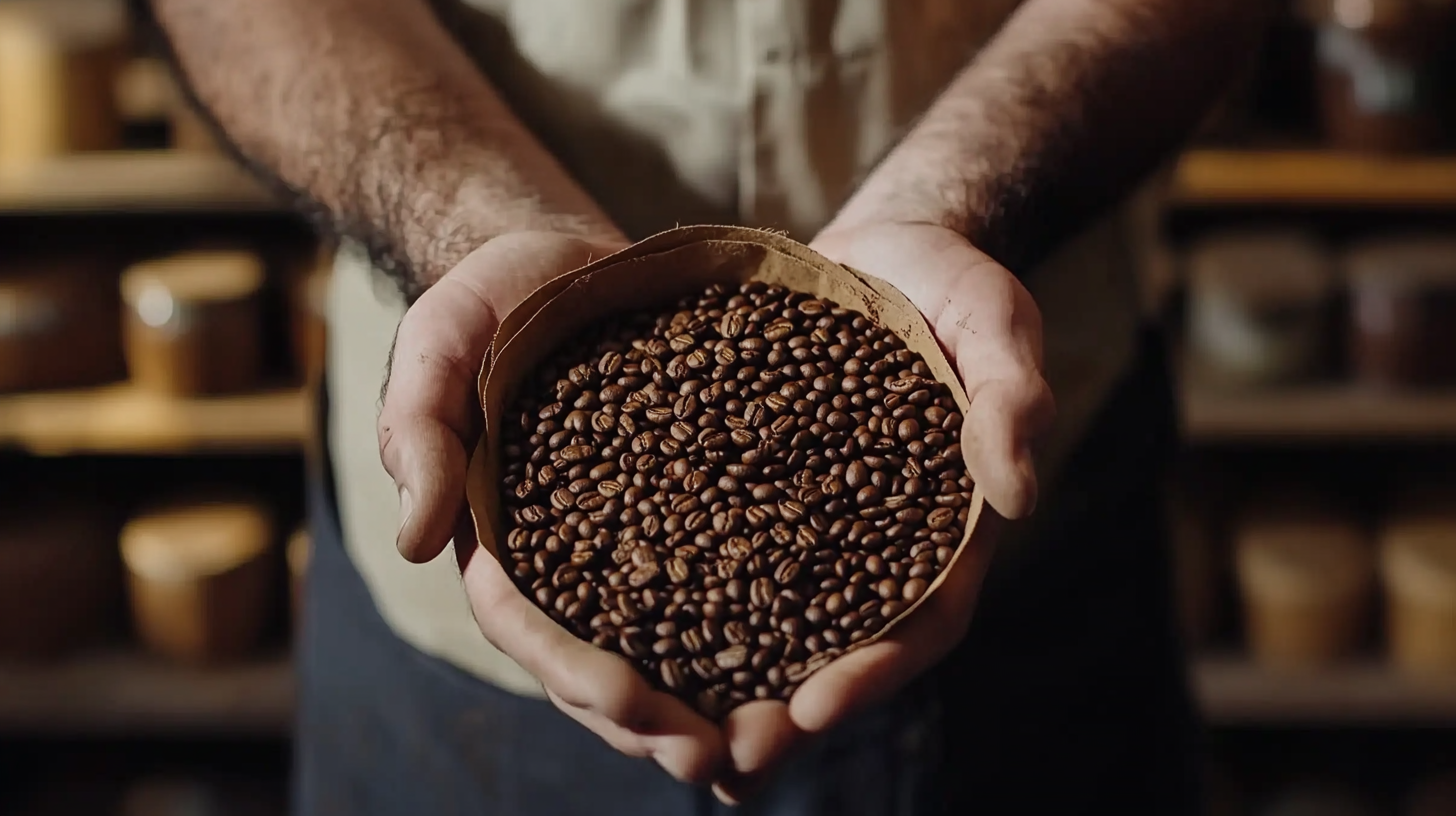Global Coffee Beans Trends for 2025: Innovative Solutions for Sustainable Sourcing
From 2025 onwards, the coffee industry is expected to undergo a very big change due to changing patterns of consumption and increasing liveliness in awareness about sustainable sourcing and environment. The centre of this transition is obviously from millions of people around the world: the coffee bean. The rising concerns about climate change, ethical production, and a shift toward environmentally sound consumption will lead stakeholders at every point in the coffee supply chain to innovate and adapt in response. Emerging trends will eventually benefit the reader who finds it necessary to know how they are shaping the future of coffee beans, and present examples of cutting-edge innovations within them.
On the journey to sustainability, all the main actors in the profession, from producers to retailers, have turned their heads in another direction while reimagining how coffee beans will be cultivated, treated, and marketed. Newly adopted technologies and other developments such as regenerative agricultural practices and direct trade partnerships are all ways the industry hopes to meet the needs of conscientious consumers. How trends such as these will grow, however, is something we will learn as we discuss the variety of changes expected by 2025-here taking in how they will improve not only the quality of coffee beans but also the more responsible and exacting approach to one of the planet's beverages.

Emerging Technologies Revolutionizing Coffee Bean Production
New technologies are set to transform the coffee industry, which is on the verge of radical change in the way coffee beans are produced. Newer solutions are fast gaining momentum toward a more responsible means of sourcing, especially concerning consumer awareness of sustainability. A prime example of this excited dynamic is the employment of precision agriculture that uses data analytics and IoT devices to optimize resources. Real-time monitoring of soil behavior, the weather, and plant health helps farmers make wise decisions on maximizing output while minimizing chemicals. Meanwhile, advancements in genetics help create coffee varieties that are more tolerant of climate change and pest and disease outbreaks. In particular, scientists use gene editing technologies to produce beans that resist pests and disease and need less water. Such initiatives will benefit environmental growth while also enhancing farmers' livelihoods, usually dictated by climate change. Automation and robotics have also changed the way harvesting is done, with drastic reductions in labor costs and operational efficiency improvements. Drones, using imaging technology, can quickly scan large plantations and identify areas that need attention, whether for pest control, irrigation, etc., compared to conventional methods. This technological integration empowers growers to streamline their operations while still producing high-quality beans sustainably, in accordance with market demand and ethical sourcing standards. As these innovations unfold, the coffee industry is heading toward a brighter and much more sustainable tomorrow.

The Role of Climate Resilience in Sustainable Coffee Sourcing
The threat to the sustainability of coffee sourcing comes from climate instability, especially in major coffee-growing regions such as Yunnan, where extreme drought reduces coffee yield by more than 30%, and cold spells with around 25% yield reduction. These grim numbers emphasize the dire need for innovative climate-resilience approaches to improve the quality of farming. Hence, the introduction of more resilient coffee varieties and creating an extensive risk insurance mechanism may help in dealing with adverse weather conditions.
Industry experts have revealed that the year 2023 is on the verge of becoming the hottest ever year of all time due to the ongoing crisis on our climate, stressing the significance of sustainable coffee sourcing. Reduction of greenhouse gas emissions by industry leaders by 20% before 2025 is in coordination with a broader set of Environment, Social, and Governance (ESG) index markers with current focal points in corporate responsibility. With incorporation into core management strategies, the coffee industry would safeguard sources in ultimate sustainability that might guarantee the perpetuation of coffee cultivation in the face of climate-related challenges.
Words circulated tell the importance of investing in practices contributing to adaptability to climate variability by improving their agricultural base. With realization of improved resources and techniques, farmers have room to improve their resilience vis-à-vis adverse weather conditions. Unity between coffee producers and sustainability organizations with interests in sustainability is unavoidable as a mechanism to ensure mutual growth between the farmer and his supporting ecosystem in the era of rapid climate change.

Innovative Practices for Fair Trade and Direct Sourcing Models
In the rapidly changing times of the coffee industry, innovative trends in fair trade and direct sourcing models will become ever more relevant. A recent publication of the International Coffee Organization predicts that the global coffee trade will expand at a CAGR of 4.5% from 2023 to 2025. Such growth necessitates sustainable practices that benefit producers as well as ensure the longevity of coffee cultivation.
In recent times, there has been growing momentum behind fair trade, with farmers asking for better compensation for their labor and produce. According to research by Fair Trade International, certified farmers earn, on average, 25% more than their non-certified counterparts, signifying the economic benefits of the models. This enhanced earnings allows farmers to invest in sustainable practices which, in turn, contribute to better quality and higher yield while minimizing environmental impact. With consumers increasingly sourcing products they deem ethically sourced, brands following fair trade practices are very likely to remain flourishing in this competitive market.
By eliminating the presence of intermediaries in the supply chain, direct sourcing models will enhance the value creation of fair trade ventures by promoting transparency. According to the McKinsey report, roasters that directly procure coffee from farmers can, therefore, save 20-30% in production costs, thus allowing the support of this win-win initiative for both sides. This way, all involved in the coffee community can be assured of bean quality and traceability. The combination of these new sourcing methods allows the industry to respond to the increased demand for high-quality, responsibly sourced coffee while fostering global economic equity for producers.

Consumer Trends Driving Change in Coffee Production Ethics
With 2025 fast approaching, the coffee industry is undergoin...
By 2025, growing consumer awareness and ethical considerations are driving transformative changes in the coffee industry. A new breed of coffee drinkers is motivated by the desire to trace back the origins of their beans so that demand for sustainably sourced products has risen dramatically. This movement connects to the larger trend of ethical consumerism, whereby consumers look for transparency, the protection of the environment, and social responsibility as criteria for their buying decisions.
A notable revamped buzzword is the growing popularity of certification labels such as FairTrade and Rainforest Alliance. These ensure consumers that growers are compensated fairly, and environmentally friendly practices are being put in place. These certifications create trust and bend power toward many smallholder farmers so that they earn a living wage and support sustainable farming. Also, promising technologies are being used to enhance supply chain transparency, giving eco-conscious consumers direct interaction with the farmers who grow their coffee.
Also, the shift is being driven by huge purchasing power from younger consumers, particularly the Millennials and Gen Z consumers willing to pay a premium for ethical coffee. Brands are responding by adopting sustainable practices and flaunting their commitment to social justice and environmental stewardship. Thus, the change spurred by consumers is not merely a fad but rather a profound reappraisal of the ways in which coffee is sourced and subsequently consumed into a more just and sustainable industry for all stakeholders concerned.
Partnerships and Collaborations for a Greener Coffee Industry
The transformation of the global coffee industry has already been projected for reckonings by 2025, where sustainability shall declare its special features through more commitments and innovative partnerships. As far as the climate effects on coffee production are concerned, the active involvement of stakeholders across the whole spectrum of the industry would tell a different story, much more with farmers and environmental organizations. Strong networks and sharing resources would be with these partnerships when they are preserved and basically lead to pure ways to adapt to biodiversity and enriching communities.
The other important trend is seen in the emerging certificate program having more encouragement from farm practices toward sustainability. The collaboration usually involves greater coffee buyers working directly with smallholder farmers and giving them a certain form of training plus financial assistance to use organic farming practices. It will not only increase the quality of coffee, but it will also be championing farmers' rights, giving them a fair income while improving their working conditions. Thus, the common cause for a greener coffee supply chain brings in appealing promises to the environmentally conscious consumer audience for driving the demand for sustainably sourced goods.
The technology-enabling collaboration also helps in data sharing and ensures visibility all throughout the chain. Digitalization enables the movement of coffee beans from fend-to-cup since it tracks the bean to ensure ethical sourcing while reducing the footprint on the environment. The above 'innovations' will result in different producers-consumer bonds strengthening these as movements based on coffee culture towards responsible sourcing and environmental stewardship. The collaboration of coffee industry players cleansing infrastructures would yield a coffee ecosystem that adapts and thrives in sustainably changed climatic realities.



